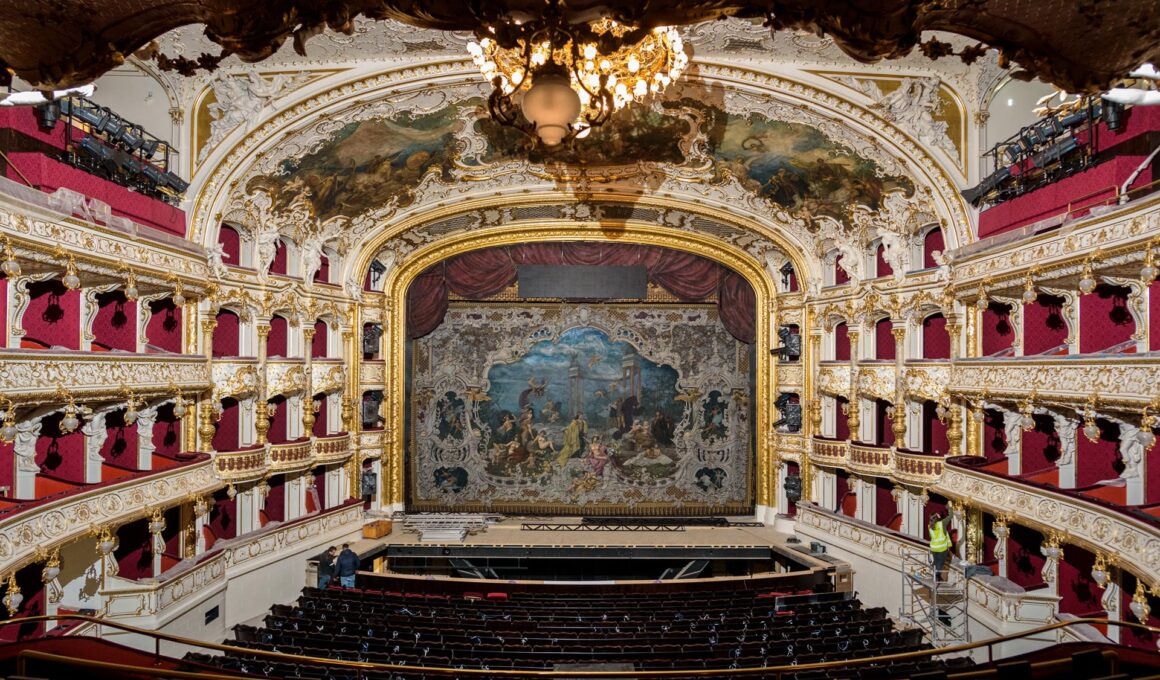Prague State Opera, Czech name: Státní opera Praha
The Prague Opera House should be an essential part of any Prague sightseeing tour. Built in the 1880s around the same time as the National Theatre, the Prague State Opera has the city’s largest seating capacity. The building’s style is Neo-Renaissance, with the interior decor in a Neo-Rococo style. This Prague Opera House has undergone a recent refurbishment that restores much of the location to its original beauty.
Location of the Prague Opera House & How to Get There
The Prague State Opera is on Wilsonova 4. This location is easy to reach on foot or by bike from most Prague 1 locations. Walking to and from this location makes it easier to see some of the most popular attractions in the area such as Wenceslas Square.
The Prague State Opera is within walking distance of the A and C Metro lines, the 11 Tram station, and the 504, 505, and 511 bus lines. Having access to these transit options makes the State Opera easier to reach.
Opening Hours of the Prague Opera House & Prague State Opera Tickets
Tours are available by appointment for both individuals and groups. You may arrange a tour by contacting the State Opera’s office between 9 a.m. and 5 p.m.
The full entry price for touring the Prague State Opera is 260 CZK. Children between 6 and 15, university students, and seniors over 65 received reduced admission of 160 CZK.
What to Do & What to See at the Prague Opera House
The Prague State Opera is often considered the most beautiful of all the theaters in Prague. Popular operas performed here have included Macbeth and Madama Butterfly. Ballets performed here have included Sleeping Beauty and Timeless.
Taking a tour is worth your time because of the beautiful interior, which includes a stunning lobby area and an auditorium with a capacity of over 1,000. If you should stay for one of the over 300 opera or ballet performances that take place here yearly, you will be in for a special treat.

Prague Opera House History
The opera house initially opened in 1888 as New German Theatre to cater to the needs of the German minority that lived in Prague. During the 1930s, the theater was a popular refuge for those fleeing from the growing Nazi influence in Germany. From 1939 to 1945, the theater mostly provided a venue for events sanctioned by the Nazis.
After World War II, the Prague Opera House became a venue for Czech, rather than German, opera. In 1949, the theater was renamed the Smetana Theatre, where it hosted opera and ballet performances, as well as dramas. On April 1, 1990, the building officially became the Prague State Opera.






